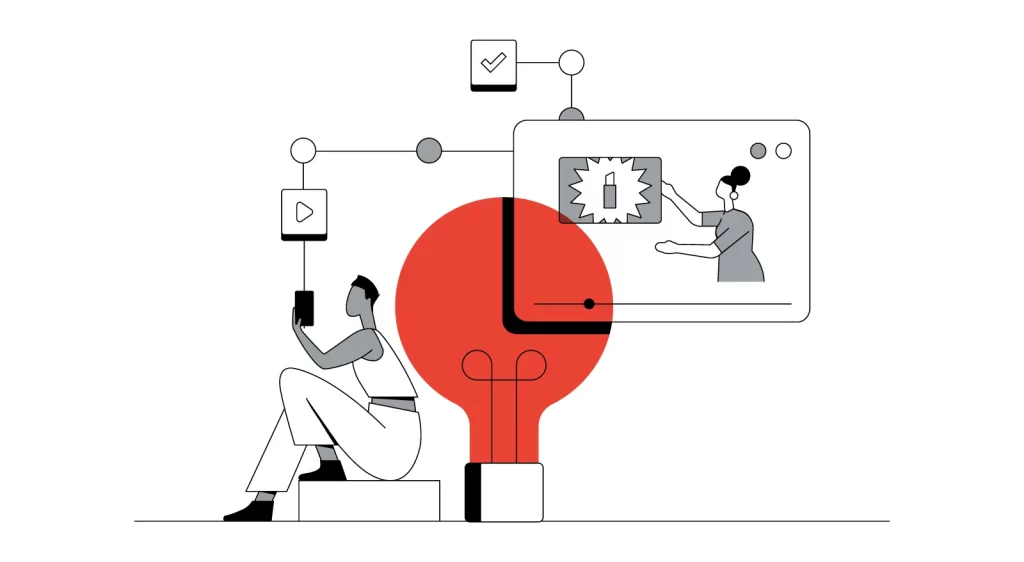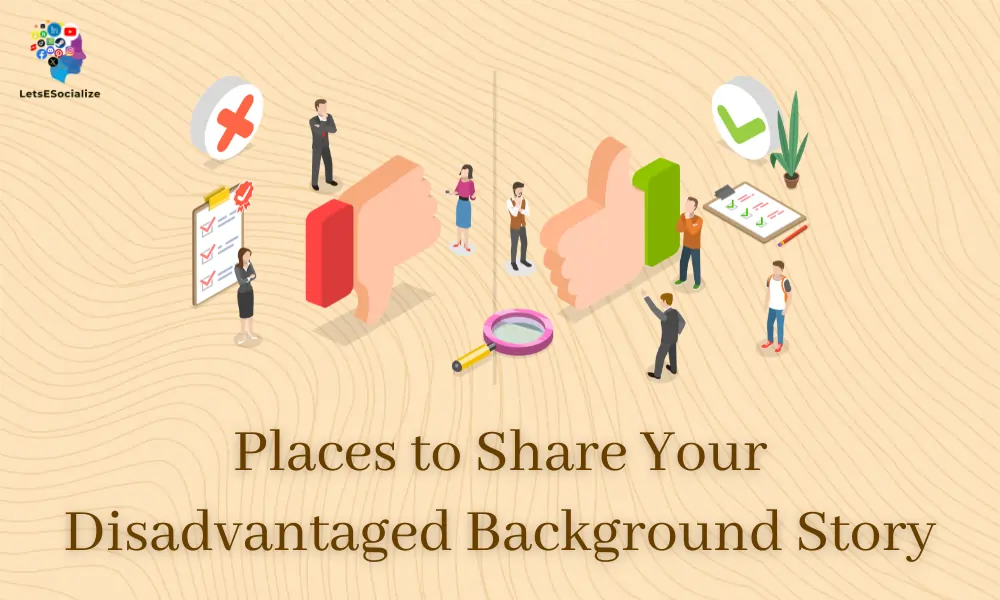Having a disadvantaged background filled with challenges like poverty, and lack of access or support can make pursuing your goals incredibly difficult. However, overcoming adversity and achieving success despite the odds makes for a compelling story.
Effectively writing about your disadvantaged background and how you persevered provides helpful context about your journey in essays, scholarship applications, your LinkedIn profile, and more. This guide covers everything you need to know to share your story genuinely and impactfully.
Table of Contents
Why Write About Your Disadvantaged Background

Sharing your experiences growing up with disadvantages provides important benefits:
- Provides context – Explains obstacles you faced pursuing goals or education.
- Shows resilience – Highlights your determination and work ethic in the face of adversity.
- Demonstrates empathy – Your struggles may enable you to relate to and support others from similar backgrounds.
- Illustrates accomplishment – Overcoming challenges makes your successes all the more impressive.
- Reveals character – Tells reviewers about positive traits like courage, persistence, and resourcefulness you developed.
- Inspires others – Your story can motivate those from disadvantaged backgrounds to strive for their dreams.
- Accesses opportunities – Some scholarships or programs specifically aid disadvantaged students.
Being transparent about your background provides insight into the exceptional circumstances you navigated on your path to success.
Also Read – Using Other Platforms to Find Good Topics for LinkedIn Content
Elements to Highlight Your Experiences

When sharing your disadvantaged background story, focus on including:
Details About Specific Challenges
Provide context on difficulties you faced like financial hardship, family circumstances, health issues, discrimination, or lack of resources.
Obstacles You Had to Overcome
Explain barriers that made achieving your goals more difficult because of your environment and situation.
Times You Needed to Be Resilient
Discuss situations where you had to power through and persevere through hard work despite adversity.
Resources That Supported You
Mention people like mentors or access to programs that enabled you to thrive when the odds were stacked against you.
Your Motivations
Share what drove you to keep pursuing your dreams despite the challenges of your background.
Key Accomplishments
List successes and milestones that made your journey a success story despite a disadvantaged start.
Specific details and examples will help reviewers truly understand your experiences and see your tenacity.
Crafting Your Story Effectively

Follow these best practices when writing your disadvantaged background story:
Be Authentic and Genuine
Share your truthful experiences even if they show vulnerability. Avoid exaggeration or being overly dramatic.
Focus on Facts
Provide objective details and data like place names, program specifics, and statistical data. Avoid assumptions.
Use a Clear, Linear Structure
Take readers through your story chronologically highlighting key setbacks and triumphs.
Be Concise But Thorough
Edit down your story to the most impactful details. But ensure you provide sufficient context.
Show Versus Tell
Use vivid imagery, dialogues, and emotions to immerse readers in reliving your journey with you.
Put Struggles In Perspective
Acknowledge others face significant challenges too. Avoid the “woe is me” mentality.
End On A Positive Note
Share current successes and ambitious goals for the future.
Balancing compelling facts with optimistic resolve makes your story inspiring.
Places to Share Your Disadvantaged Background Story

Consider including your story in these materials:
College Application Essays
Many prompts specifically ask for observations on challenges you’ve faced and what you learned.
Scholarship Essays
Discussing financial needs and obstacles overcome highlights why you merit aid.
LinkedIn Profile Summary
Briefly summarizing challenges provides context for your journey.
Graduate School Applications
Explaining hardships helps assess your qualifications and potential accurately.
Medical School Applications
AMCAS essays on disadvantages provide perspective on life experiences.
Job Interviews
Selectively mentioning some obstacles overcome can showcase your resilience.
Inspiring Speeches
Public talks on achieving dreams despite adversity motivate audiences.
Memoirs
Books or articles detailing your full journey provide in-depth inspiration.
Tailor details to fit word counts but focus on honesty across all contexts.
Also Read – How effective are LinkedIn’s job matching and Easy Apply features?
Dos and Don’ts In Writing Your Disadvantaged Background Story

Aim to strike the right tone by:
DO:
- Highlight strengths gained through adversity
- Keep the focus on your own experiences
- Have others review your story to ensure it resonates
- Reference specific people, programs, or places by name
- Express gratitude for those who helped you
DON’T:
- Dwell on anger or negativity
- Exaggerate challenges for dramatic effect
- Demonize other groups or people
- Only discuss disadvantages without resilience
- Sensationalize painful experiences just for sympathy
Keep perspective. Your obstacles shaped you but didn’t wholly define you.
Turning Your Story Into Service For Others
Sharing your success after a disadvantaged background also enables you to pay it forward by:
- Mentoring students from similar backgrounds
- Volunteering with supportive programs that aided you
- Creating scholarships for disadvantaged youth
- Serving as a role model through public speeches
- Advocating for policy changes to expand access and equity
Your experiences give you powerful insights that can help lift others facing the challenges you once faced. Let your story inspire your service.
Key Takeaways for Writing Your Disadvantaged Background Story
- Be authentic – Share truthful details of the challenges you navigated.
- Focus on facts – Objective, specific examples build credibility.
- Show resilience – Highlight perseverance and motivation despite the odds.
- Express gratitude – Recognize those who helped you achieve success.
- Inspire others – Your story demonstrates disadvantaged youth can realize their dreams.
- Uplift communities – Use your experiences to mentor youth facing similar situations.
Writing a compelling disadvantaged background story provides context on the exceptional circumstances you overcame to motivate, uplift, and inspire. With honesty and care, you can turn your powerful story into service for others.







